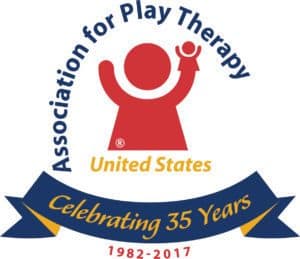Frequently Asked Questions
What is a Registered Play Therapist?
A Registered Play Therapist is a mental health professional that completed at least 150 hours of additional play therapy training after their initial licensure. A Registered Play Therapist has had additional supervision regarding using play therapy to help children and is required to continue obtaining play therapy specific training every three years.
The Registered Play Therapist, Registered Play Therapist-Supervisor and School Based Registered Play Therapist (SB-RPT) credentials are conferred by the Association for Play Therapy. Learn more by visiting their website.

Why are you only accepting clients in some states?
Jen Taylor is currently licensed as a Clinical Social Worker in Florida, Tennessee and Hawaii. In general, clinicians can only provide psychotherapy services in states in which they are licensed. The rules for tele-health services can be complicated and are constantly changing and if services become available in other areas, I will make updates to this policy.
For professionals, what type of credit hours do you provide?

Jennifer Taylor Play Therapy Services is an Approved Provider with the Association for Play Therapy (APT Approved Provider 12-331). Any programs that are approved for play therapy contact or non-contact hours are listed can be found here.
Note: not all programs offered are play therapy specific. Programs that are not play therapy specific do not qualify for play therapy credit. Play therapy credit is available to mental health professionals only.

Jennifer Taylor has been approved by NBCC as an Approved Continuing Education Provider, ACEP No 6928. Programs that do not qualify for NBCC credit are clearly identified. Jennifer Taylor is solely responsible for all aspects of the programs.
Do you prescribe medication?
No. As a Licensed Clinical Social Worker, I am not legally allowed to prescribe medication. Your decision to use medication (or not) is between you and your physician. I support whatever decision you make and only request that you keep me informed of the medications that you are taking and do not discontinue the use of any medications without consulting with your doctor first.
Medication can be effective and is sometimes needed in conjunction with therapy.
I’ve never talked to anyone. I’m used to handling things on my own. Aren’t people who go to therapy weak?
Not at all. People who ask for help know when they need it and have the ability to reach out. Everyone needs help now and then. You already have some strengths that you’ve used before, that for whatever reason isn’t working right now. Perhaps this problem feels overwhelming and is making it difficult to access your past strengths. In our work together, I’ll help you identify what those strengths are and how to implement them again in what is happening now.
What’s the difference between talking to you or my best friend or family?
The difference is between someone who can do something, and someone who has the training and experience to do that same thing professionally. A mental health professional can help you approach your situation in a new way– teach you new skills, gain different perspectives, listen to you without judgment or expectations, and help you listen to yourself. Furthermore, therapy is completely confidential. You won’t have to worry about others “knowing my business.” Lastly, if your situation provokes a great deal of negative emotion, if you’ve been confiding in a friend or family member, there is the risk that once you are feeling better you could start avoiding that person so you aren’t reminded of this difficult time in your life.
How does it work? What do I have to do in sessions?
Because each person has different issues and goals for therapy, therapy will be different depending on the individual. I tailor my therapeutic approach to your specific needs
How long will it take?
Unfortunately, this is not possible to say in a general FAQs page. Everyone’s circumstances are unique to them and the length of time therapy can take to allow you to accomplish your goals depends on your desire for personal development, your commitment, and the factors that are driving you to seek therapy in the first place.
I want to get the most out of therapy. What can I do to help?
I am so glad you are dedicated to getting the most out of your sessions. Your active participation and dedication is crucial to your success. After all, we only see each other for a session a week. It’s the work you do outside of our sessions that will really help you see your personal growth and development.
My partner and I are having problems. Should we be in individual counseling or come together?
If you are concerned about your relationship, and you would both like to work with me, I would initially work with both of you together. After this work, if one of you would like to continue in individual sessions, I could work with only one of you. It is not helpful to move from individual into couple’s work with the same therapist because of potential trust issues.
